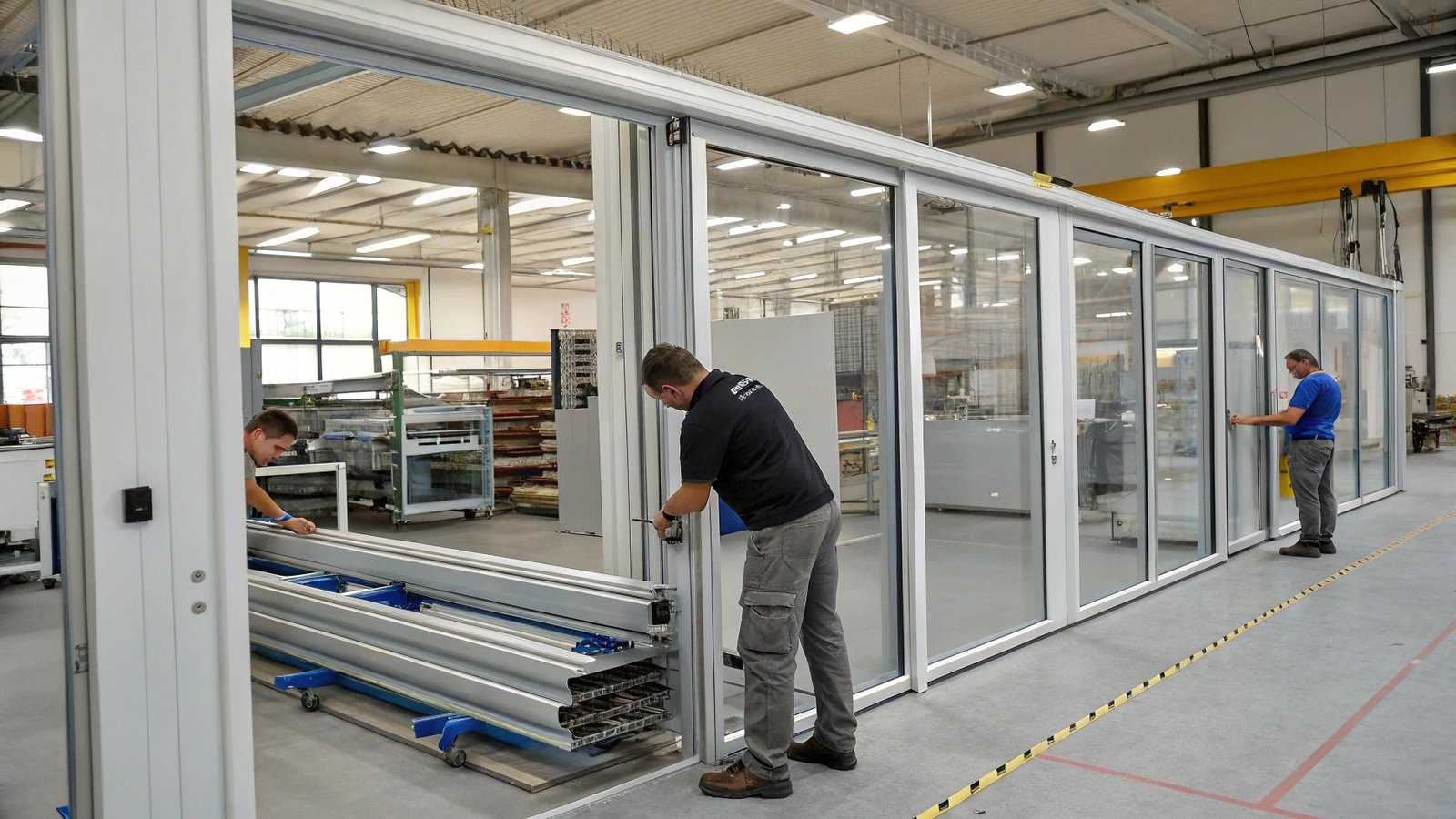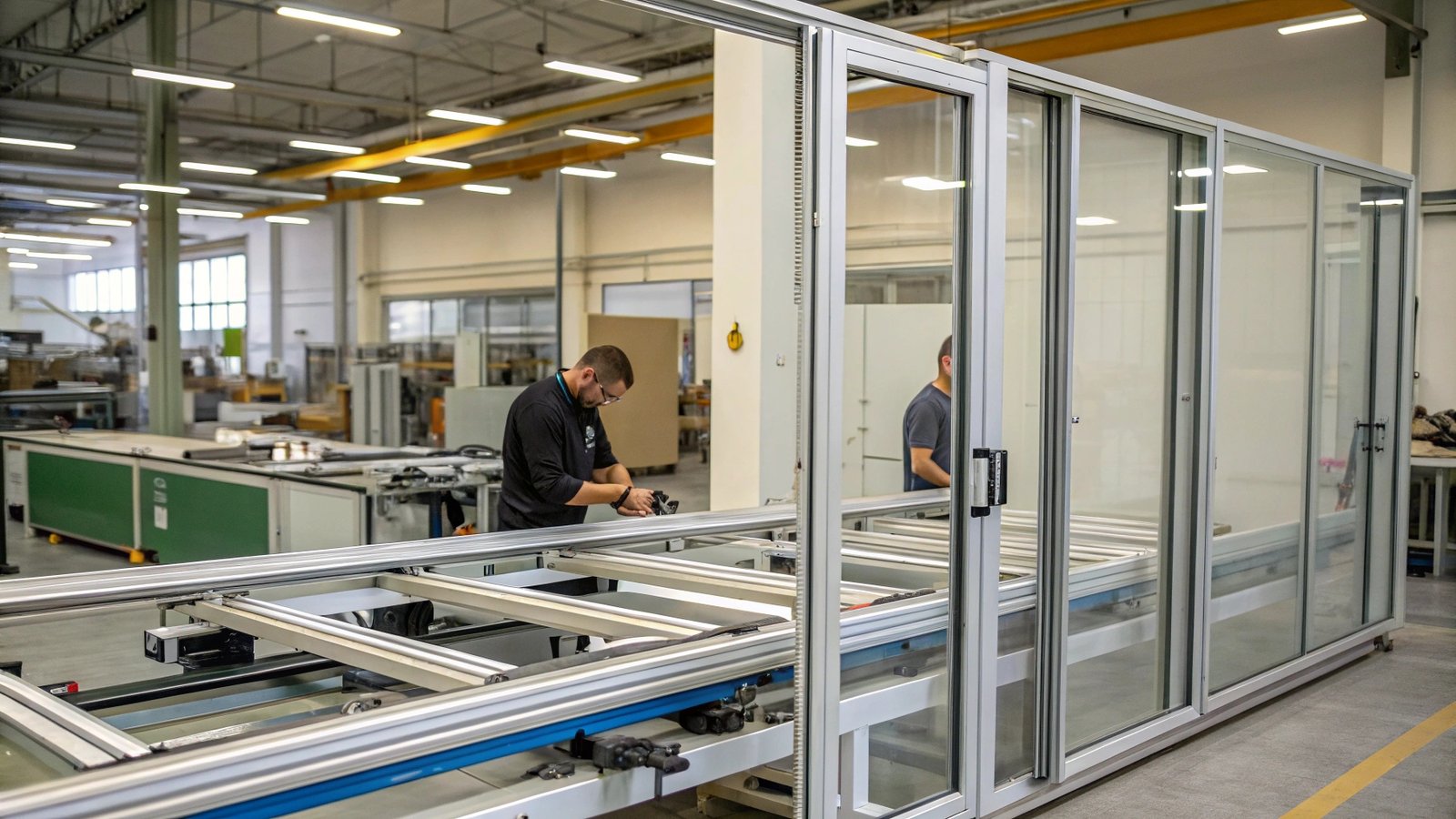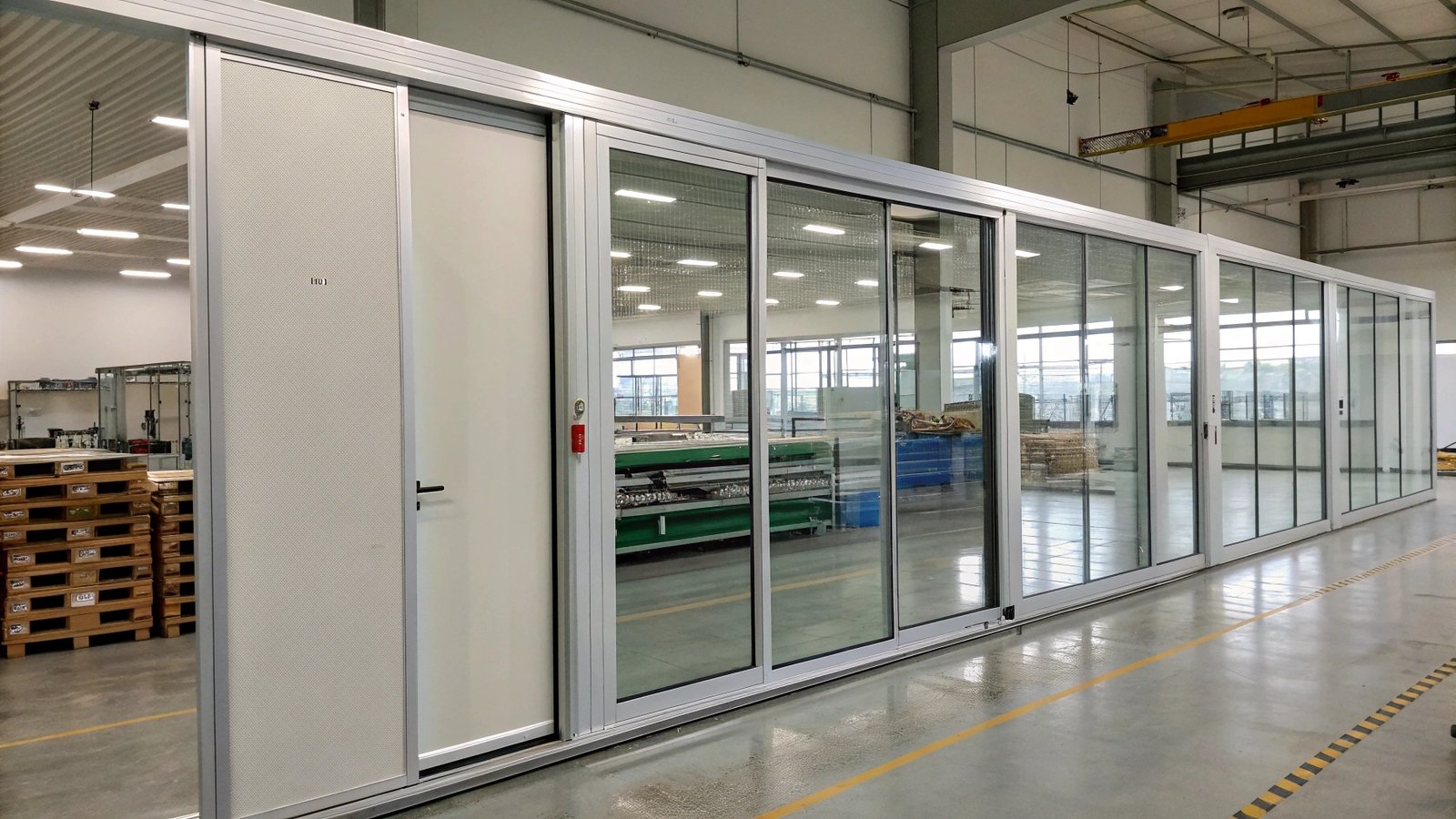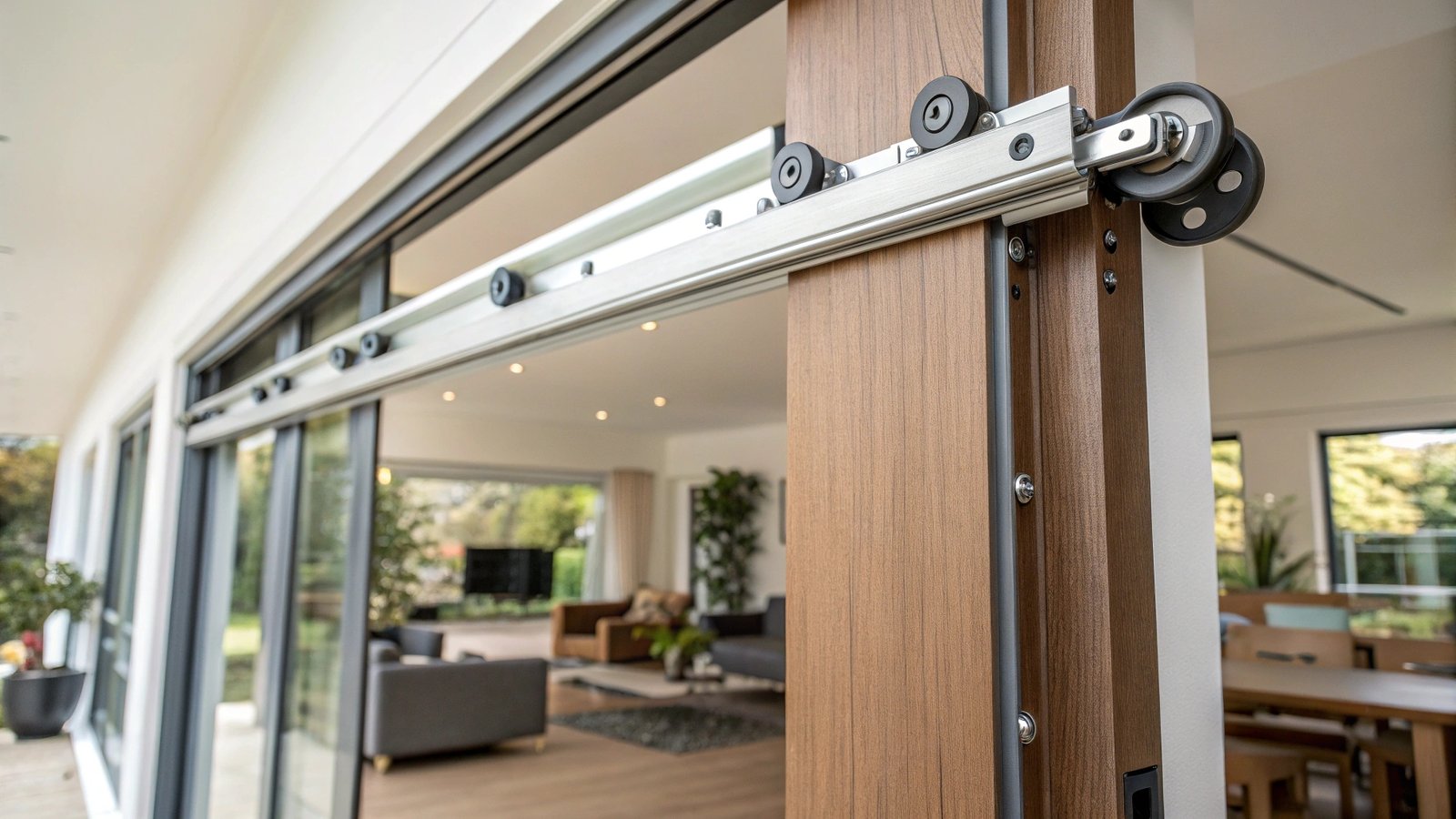Worried about sourcing hardware from China? A bad batch of rollers can ruin your project’s reputation. The right Chinese supplier ensures quality and boosts your bottom line.
Yes, purchasing soft-closing rollers and rails from Chinese suppliers is highly reliable. The key to success is thorough vetting of the factory, clear communication of your technical specifications, and establishing a strong partnership. Many top-tier global brands successfully source their hardware from China for this very reason.

I get it. The idea of sourcing critical components from halfway across the world can be daunting. As a factory owner, I’ve talked to hundreds of purchasers like you, and I understand the hesitation. But I’ve also seen firsthand how successful these partnerships can be when they are built on trust and clear communication. The question isn’t just about reliability, it’s about understanding how to ensure it. Let’s dive deeper into the specific questions you’re probably asking yourself right now, so you can make your next purchase with confidence.
Are all sliding door rollers the same?
Assuming all sliding door rollers are identical? This common mistake can lead to system failure and costly repairs. Understanding the key differences is essential for a smooth, lasting installation.
No, sliding door rollers are not all the same. They vary significantly in material, load capacity, bearing type (e.g., ball bearing vs. nylon), and the sophistication of their soft-closing mechanism. Choosing the right roller is critical for the door’s weight, usage frequency, and desired performance.

When you’re sourcing, especially from a factory like ours, the details matter immensely. A roller isn’t just a wheel; it’s an engineered component. For example, a heavy solid wood door for a partition needs a completely different system than a lightweight glass cabinet door. We must consider the load capacity—is it for a 40kg door or a 150kg heavy-duty system? Then there’s the material choice. Stainless steel offers great corrosion resistance for humid areas, while zinc alloy can be a cost-effective and durable choice for standard interiors. The type of bearing inside the roller also drastically affects smoothness and longevity. As an experienced purchaser, you know that providing these specific requirements to your supplier is non-negotiable. A good factory will welcome this detail. Here’s a simple breakdown:
| Feature | Standard Roller | Premium Soft-Close Roller |
|---|---|---|
| Material | Often Nylon/Basic Steel | Stainless Steel/High-Grade Alloy |
| Bearing | Simple Bushing or Nylon | Sealed Precision Ball Bearings |
| Load Capacity | Lower (e.g., <50kg) | Higher (e.g., 80kg-150kg+) |
| Tested Lifespan | Shorter, fewer cycles | Longer, 100,000+ cycles |
How long do sliding glass door rollers last?
Tired of sliding doors that stick and grind after a few years? Premature roller failure leads to costly service calls. Investing in quality ensures decades of smooth, reliable performance.
A good quality sliding glass door roller can last 10 to 20 years, or even longer. Lifespan depends heavily on the material quality, bearing type, installation accuracy, usage frequency, and environmental factors like humidity. Regular cleaning of the track significantly extends their life.

The lifespan of a roller isn’t just a number; it’s a direct result of its engineering and testing. At my factory, we don’t just assemble parts. We subject our soft-closing systems to rigorous cycle testing, often simulating over 100,000 opening and closing motions under full load. This is the difference between a residential-grade roller and a commercial-grade one that you can stand behind. Factors that kill rollers prematurely include incorrect installation, overloading the system, and debris in the track. A key question to ask any supplier is, "What are your testing standards, and can you provide the report?" A reliable supplier will be transparent about this. For a project in a coastal area like parts of Canada, you’d need rollers made from 304 stainless steel to resist salt-air corrosion. For a high-traffic office, you need rollers with high-grade sealed bearings. Communicating the end-use environment is just as important as specifying the door weight.
Did the Chinese use sliding doors?
Think sliding doors are a modern invention? You might be missing out on centuries of design history. China’s architectural tradition has a deep and inspiring history with sliding partitions.
Yes, China has a long history of using sliding doors and partitions, dating back centuries. Traditional architecture often featured intricate wooden screens and panels that slid along grooves in the floor and lintel. This long-standing familiarity with the concept underpins the modern manufacturing expertise found today.

This isn’t just a fun fact; it’s relevant to you as a buyer. The principle of saving space and creating flexible layouts with sliding elements has been part of Chinese design philosophy for a very long time. Think of the intricate room dividers in ancient palaces or the simple, elegant screens in traditional homes. They didn’t have ball bearings or hydraulic dampers, of course. They relied on masterful carpentry and well-worn grooves in the floor and overhead beam. What does this mean today? It means the concept is deeply ingrained in our engineering culture. The modern Chinese hardware industry didn’t just copy a Western design; it evolved a native concept with modern technology and manufacturing prowess. This leap from hand-carved wood runners to precision-engineered, soft-closing steel rollers is a testament to our country’s manufacturing journey. We understand the mechanics of a sliding door from a fundamental level.
Is a sliding door cheap?
Thinking a sliding door is always the cheap option? The initial price tag can be misleading, hiding future repair costs. True affordability is measured by quality and long-term reliability.
A sliding door’s cost varies widely. While a basic system can be cheaper than a hinged door, high-quality systems with soft-closing mechanisms and heavy-duty capacity can be a premium choice. The hardware—the roller and track system—is the biggest factor in both cost and performance.

Let’s be direct: you get what you pay for. An experienced purchaser knows this well. The goal isn’t to find the ‘cheapest’ roller, but the one with the best cost-performance ratio. When you’re looking at a sliding door project, the hardware might only be a fraction of the total cost of the door, frame, and labor, but it’s responsible for 100% of the movement and feel. Skimping here is a classic false economy. A cheap roller might save you a few dollars upfront, but it can cost hundreds in labor and replacement parts when it fails, not to mention the damage to your reputation. When you source from a Chinese factory like ours, you gain access to economies of scale. We can produce high-quality, rigorously tested soft-closing systems at a price point that is highly competitive. This isn’t about being ‘cheap’; it’s about being efficient and offering incredible value for your investment.
Conclusion
Ultimately, sourcing soft-close rollers from China is a reliable and smart business decision. Success hinges on clear communication and choosing a quality-focused factory partner for long-term value.

